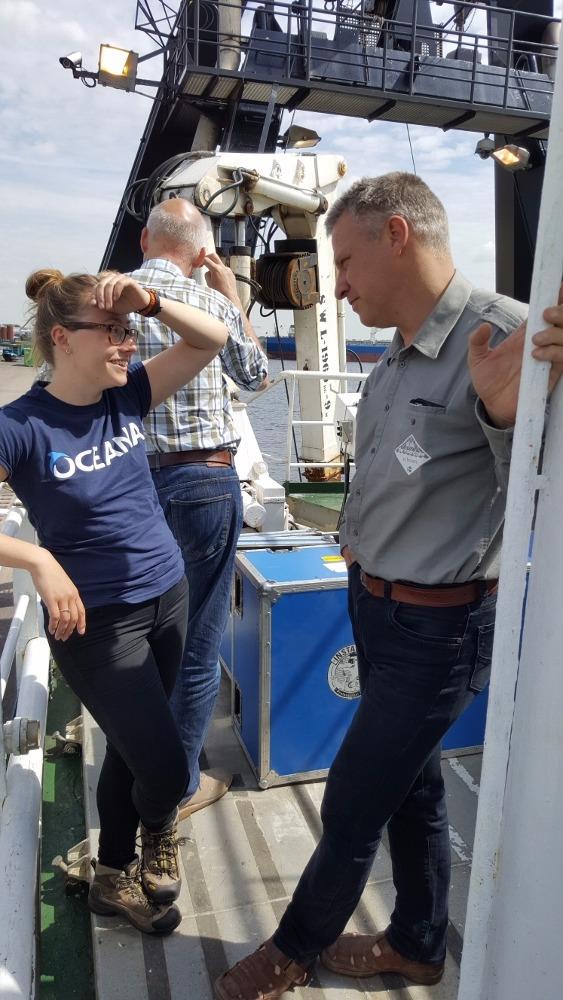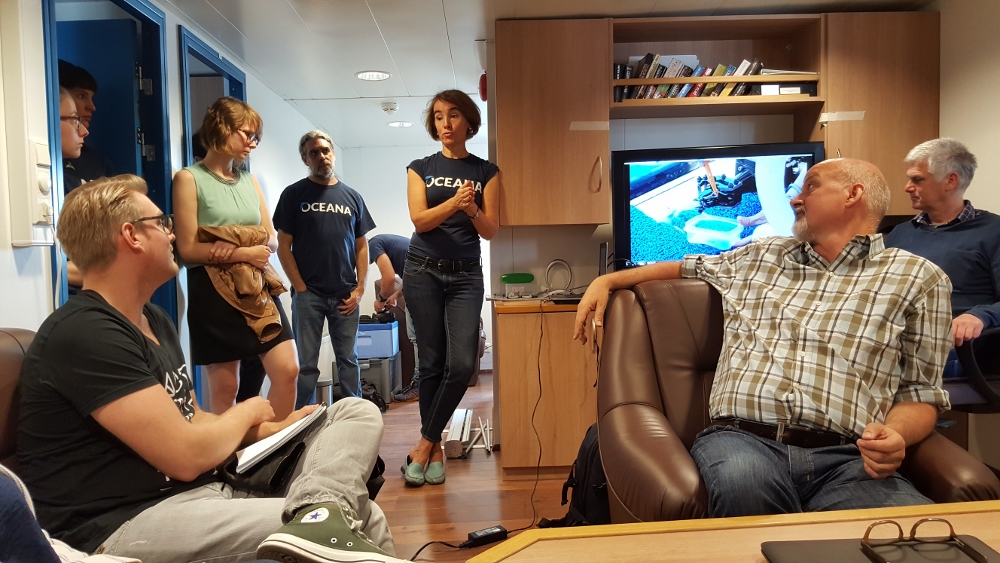Niels Schrieken posted on juli 12, 2016 13:14

Press Release Date: Friday, July 8, 2016
Oceana North Sea expedition 2016
Two-month research cruise will gather at-sea data on species and habitats, to strengthen network of marine protected areas and support fish stock recovery.

Cecilie Petersen (Oceana) and Robertino Mulder (Stichting Duik de Noordzee Schoon) (photo: Niels Schrieken)
Oceana will be launching this afternoon its first ever North Sea research expedition, to survey marine life in the waters of the Netherlands, the UK, Norway and Denmark, with a special focus on Dutch waters. During the at-sea study that was generously funded by the Dutch Postcode Lottery, Oceana’s scientists will document species and habitats in 13 areas of interest. This data will lay a solid foundation for strengthening the network of marine protected areas (MPAs) in the region, which is currently insufficient.
The two-month expedition will gather data from depths of up to 400 metres using Oceana’s remotely operated vehicle (ROV), which is capable of capturing life on the seafloor in high definition. Additional data will be collected by professional scuba divers and through sediment sampling, allowing scientists to identify, document, and film marine communities on the seafloor:

Marta Madina (Oceana) onboard Neptune (Photo: Niels Schrieken)
“The eight European nations that border the North Sea have put its marine ecosystems under tremendous pressure for hundreds of years. Few areas of the seabed are untouched by fishing, particularly bottom trawling, and many habitats and species have been seriously affected,” explains Lasse Gustavsson, Executive Director of Oceana in Europe. “Scientists have estimated that the current biomass of large fish in the North Sea is more than 97% lower than would be expected without any fishing. Just as North Sea countries have shared the economic benefits from these waters, so must they share the responsibility for rebuilding what has been lost or damaged. Oceana’s first-hand data will contribute to a stronger, better-managed network of MPAs, yielding benefits not only for biodiversity protection, but also for fish stock recovery and for restoring abundance to the North Sea region, adds Gustavsson.”
The North Sea is one of the most productive seas in the world, with a wide range of plankton, fish, seabirds, and organisms that live on the seafloor. It is also of great socio-economic value due to its fisheries, oil and gas extraction, harbours and industry – which in turn have also made it one of the busiest, most highly disturbed seas in the world. The most notable impacts on biodiversity in the North Sea are due to fisheries and eutrophication, in addition to a long list of other threats, including pollution, maritime shipping, infrastructure, and coastal development.
Currently, many MPAs in the North Sea lack effective management, and the majority of them are coastal, which neglects protection of off-shore species, including commercially exploited ones. During the expedition, Oceana will survey both coastal and offshore areas where first-hand information is needed for improved marine protection, either through MPA designation, expansion, or stronger management. Data on the species, habitats, and communities identified will later be used to develop proposals for such measures of protection. Information gathered will also be shared with national authorities, scientists, and other organisations, to support broader efforts to protect biodiversity in the region.
During the North Sea expedition, Oceana will collaborate with the Dutch conservation organisation Stichting Anemoon as a guest partner.